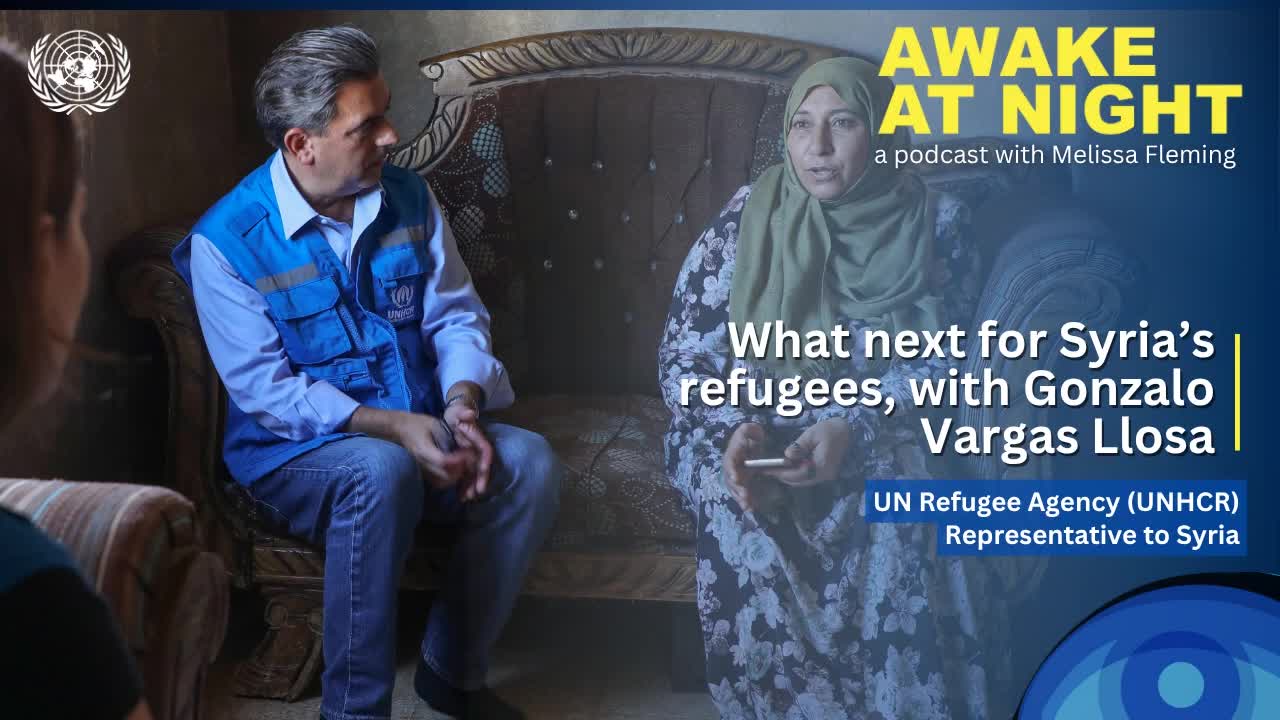Gonzalo reflects on 34 years of humanitarian work at UNHCR in complex conflict zones
August 02, 2025 | United Nations, Federal
This article was created by AI summarizing key points discussed. AI makes mistakes, so for full details and context, please refer to the video of the full meeting. Please report any errors so we can fix them. Report an error »

In a recent discussion with Gonzalo Vargas L, the UNHCR Representative to Syria, the complexities of humanitarian work and the personal sacrifices it entails were brought to light. Vargas, who has dedicated over three decades to serving refugees and displaced individuals, shared his journey and the profound impact of his experiences in various conflict zones.
Vargas recounted a pivotal moment from his youth that ignited his passion for humanitarian work. After visiting an orphanage in Ayacucho, Peru, he returned to London determined to pursue a career focused on helping others, despite initial expectations to become a translator or interpreter. This decision led him to join the United Nations, where he has since worked in numerous countries, including Afghanistan, Bosnia, and Libya, witnessing significant historical events firsthand.
Throughout his career, Vargas emphasized the emotional toll of working in challenging environments. He described the rewarding yet demanding nature of his role, highlighting the importance of daily interactions with those he serves. However, he also acknowledged the strain such a career can place on personal relationships, revealing that his commitment to humanitarian work contributed to the dissolution of his marriage and time away from his children during their formative years.
Despite these challenges, Vargas expressed gratitude for the relationships he has maintained with his children, who have shown understanding of his career choices. He reflected on the dual nature of his work, which not only fulfills his desire to help others but also serves his personal aspirations.
Looking to the future, Vargas remains hopeful for a world without refugees, a vision he believes is tied to global peace and dignity. While he recognizes that achieving this goal may not happen in his lifetime, he remains an eternal optimist, aspiring for a better future for the next generations.
This conversation sheds light on the intricate balance between professional dedication and personal sacrifice in the humanitarian field, illustrating the profound commitment required to serve those in need. As the UNHCR continues its mission, Vargas's insights remind us of the human stories behind the statistics of displacement and the ongoing quest for a more peaceful world.
Vargas recounted a pivotal moment from his youth that ignited his passion for humanitarian work. After visiting an orphanage in Ayacucho, Peru, he returned to London determined to pursue a career focused on helping others, despite initial expectations to become a translator or interpreter. This decision led him to join the United Nations, where he has since worked in numerous countries, including Afghanistan, Bosnia, and Libya, witnessing significant historical events firsthand.
Throughout his career, Vargas emphasized the emotional toll of working in challenging environments. He described the rewarding yet demanding nature of his role, highlighting the importance of daily interactions with those he serves. However, he also acknowledged the strain such a career can place on personal relationships, revealing that his commitment to humanitarian work contributed to the dissolution of his marriage and time away from his children during their formative years.
Despite these challenges, Vargas expressed gratitude for the relationships he has maintained with his children, who have shown understanding of his career choices. He reflected on the dual nature of his work, which not only fulfills his desire to help others but also serves his personal aspirations.
Looking to the future, Vargas remains hopeful for a world without refugees, a vision he believes is tied to global peace and dignity. While he recognizes that achieving this goal may not happen in his lifetime, he remains an eternal optimist, aspiring for a better future for the next generations.
This conversation sheds light on the intricate balance between professional dedication and personal sacrifice in the humanitarian field, illustrating the profound commitment required to serve those in need. As the UNHCR continues its mission, Vargas's insights remind us of the human stories behind the statistics of displacement and the ongoing quest for a more peaceful world.
View full meeting
This article is based on a recent meeting—watch the full video and explore the complete transcript for deeper insights into the discussion.
View full meeting